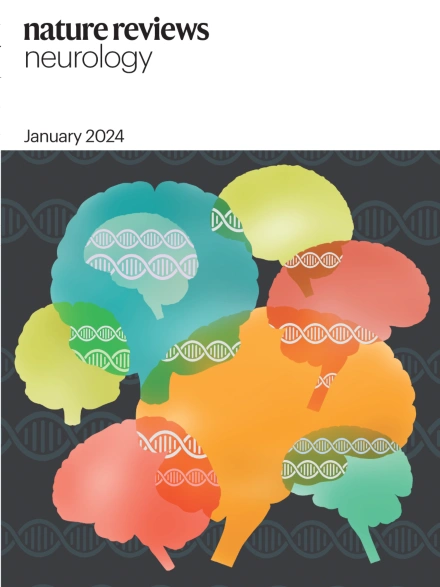少突胶质祖细胞移植治疗多发性硬化症
IF 28.2
1区 医学
Q1 CLINICAL NEUROLOGY
引用次数: 0
摘要
新研究表明,将转基因少突胶质祖细胞(OPC)移植到多发性硬化症小鼠模型中可改善髓鞘再形成。研究人员利用CRISPR技术在人类胚胎干细胞衍生的OPCs中删除了神经蛋白1,这是一种SEMA3A受体,在多发性硬化症患者的脱髓鞘病灶中高度表达,对OPCs有趋化作用。移植经修饰的OPC增强了小鼠的髓鞘再形成,为OPC移植作为多发性硬化症的潜在治疗策略提供了概念证明。本文章由计算机程序翻译,如有差异,请以英文原文为准。
Oligodendrocyte progenitor cell transplant for MS
求助全文
通过发布文献求助,成功后即可免费获取论文全文。
去求助
来源期刊

Nature Reviews Neurology
医学-临床神经学
CiteScore
29.90
自引率
0.80%
发文量
138
审稿时长
6-12 weeks
期刊介绍:
Nature Reviews Neurology aims to be the premier source of reviews and commentaries for the scientific and clinical communities we serve. We want to provide an unparalleled service to authors, referees, and readers, and we work hard to maximize the usefulness and impact of each article. The journal publishes Research Highlights, Comments, News & Views, Reviews, Consensus Statements, and Perspectives relevant to researchers and clinicians working in the field of neurology. Our broad scope ensures that the work we publish reaches the widest possible audience. Our articles are authoritative, accessible, and enhanced with clearly understandable figures, tables, and other display items. This page gives more detail about the aims and scope of the journal.
 求助内容:
求助内容: 应助结果提醒方式:
应助结果提醒方式:


